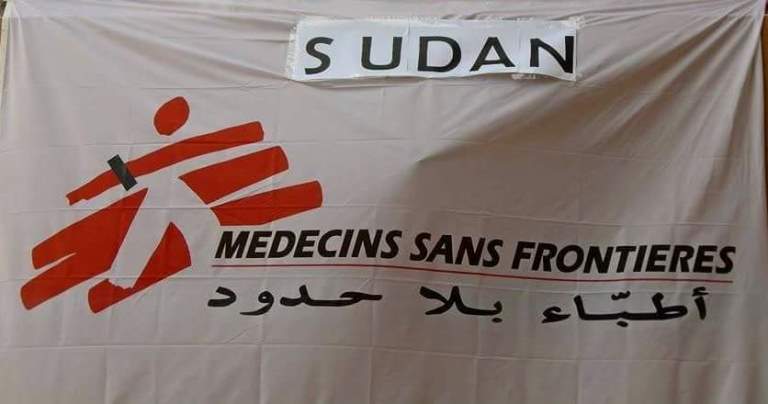Access to health care remains a challenge in Sudan: MSF
September 1, 2023 (KHARTOUM) – The biggest challenge of providing health care in Khartoum remains access due to extreme insecurity, a medical charity said.
Medicines San Frontiers, in a statement issued on Sunday, said almost zero transportation makes it very difficult for patients to get to the hospital.
“There are no ambulances,” the statement noted.
“Any vehicles that go out are commandeered by the armed personnel who control the streets”, it added.
Currently, MSF said, there is only one rental vehicle with one courageous driver who is able to bring in medicines, food as well as water for its patients and staff.
The agency expressed concerns about the multiple checkpoints on the roads, saying it has to explain its presence and type of assistance delivered.
Shortage of fuel shortage in Khartoum and other part of the country has forced people to begin using wooden donkey carts again, or they simply walk by foot.
“Some patients told me that they had walked over 10 miles and crossed the frontlines to reach us,” said Dr. Mego Terzian, the MSF head of mission at the Turkish hospital in Khartoum.
Concerns were raised on the maternal health and the collapse of health systems.
MSF cites blood storage challenge due to fuel and electricity shortages in the city.
“Bringing in new medical supplies is also becoming more difficult because travel permits are no longer being issued regularly, and this prevents our teams from being able to enter Khartoum to restock the hospital,” stressed Terzian.
Meanwhile, the medical charity said its teams are currently witnessing the dire living conditions in refugee settlements in Adré, eastern Chad, where people face severe shortages of food, water, sanitation, shelter, and medical care.
Several medical facilities, according to the agency, have been damaged in the fighting, while other facilities are overwhelmed with patients and are short of medical staff, supplies, and, in some cases, water and electricity.
“It’s hard to describe what these people are going through. People are desperately waiting for food rations. Some have gone five weeks without receiving food,” says Susana Borges, MSF emergency coordinator in Adré.
She added, “People are feeding their children on insects, grass, and leaves. They have much less water than they need and many have no shelter whatsoever. How can they survive like this? People are desperately waiting for food rations, but they don’t even have basic cooking supplies. How will they cook if they have no pots?”
It urged the UN, donors, and humanitarian organizations to respond swiftly to the urgent humanitarian needs of the refugees in Adré and across Ouaddai province.
The conflict in Sudan has led to the displacement of more than four million people, 3.3 million of whom are displaced within Sudan itself. More than 380,000 people have crossed into eastern Chad, most of whom have sought refuge in camps and settlements in and around the border town of Adré, stressed MSF.
(ST)

